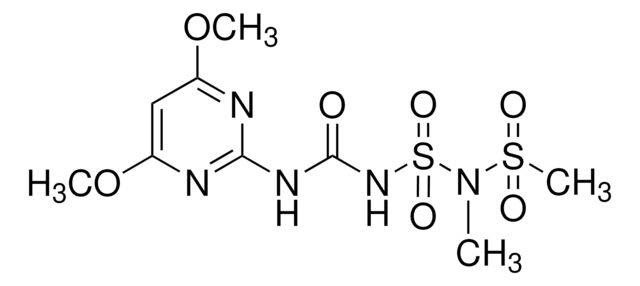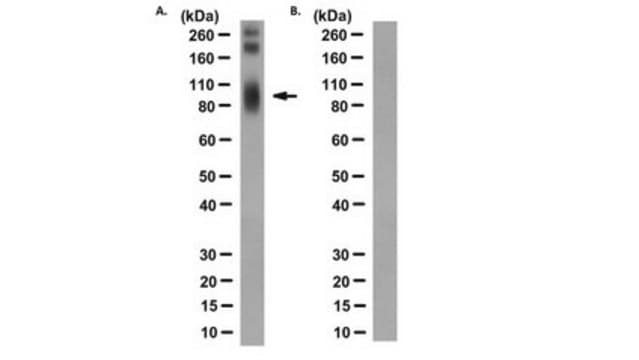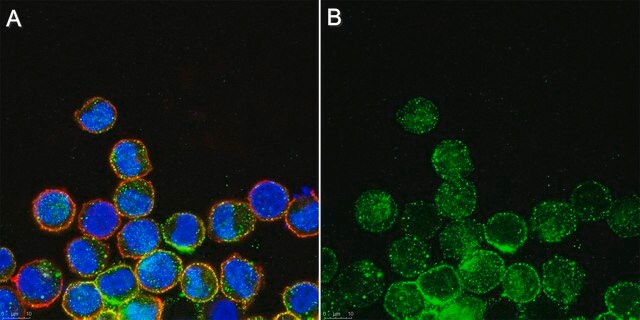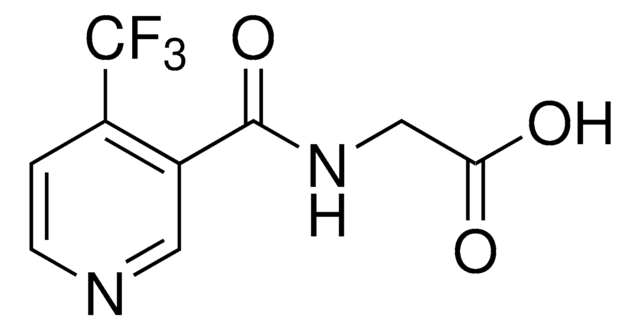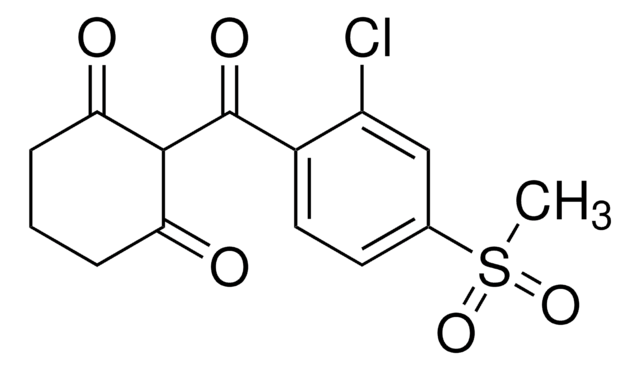MABF1980
Anti-Complement receptor C5aR (CD88) Antibody, clone S5/1
clone S5/1, from mouse
Sinonimo/i:
C5a anaphylatoxin chemotactic receptor 1, C5a anaphylatoxin chemotactic receptor, C5a-R, CD88
About This Item
Prodotti consigliati
Origine biologica
mouse
Forma dell’anticorpo
purified immunoglobulin
Tipo di anticorpo
primary antibodies
Clone
S5/1, monoclonal
Reattività contro le specie
human
Confezionamento
antibody small pack of 25 μL
tecniche
ELISA: suitable
activity assay: suitable
flow cytometry: suitable
immunoprecipitation (IP): suitable
inhibition assay: suitable
western blot: suitable
Isotipo
IgG2aκ
N° accesso NCBI
N° accesso UniProt
modifica post-traduzionali bersaglio
unmodified
Informazioni sul gene
human ... C5AR1(728)
Descrizione generale
Specificità
Immunogeno
Applicazioni
Inhibits Activity/Function Analysis: A representative lot detected Complementreceptor C5aR (CD88) in Inhibits Activity applications (Oppermann, M., et. al. (1993). J Immunol. 151(7):3785-94).
Flow Cytometry Analysis: A representative lot detected Complementreceptor C5aR (CD88) in Flow Cytometry applications (Oppermann, M., et. al. (1993). J Immunol. 151(7):3785-94; Pollok-Kopp, B., et. al. (2007). J Biol Chem. 282(7):4345-53).
Immunoprecipitation Analysis: A representative lot detected Complementreceptor C5aR (CD88) in Immunoprecipitation applications (Pollok-Kopp, B., et. al. (2007). J Biol Chem. 282(7):4345-53).
Inflammation & Immunology
Qualità
Western Blotting Analysis: A 1:20,000 dilution of this antibody detected Complementreceptor C5aR (CD88) in two BSA-conjugated C5aR peptides (aa 1-31 and 327-344) phosphorylated at Serine 332, 334, and 338
Descrizione del bersaglio
Stato fisico
Stoccaggio e stabilità
Altre note
Esclusione di responsabilità
Non trovi il prodotto giusto?
Prova il nostro Motore di ricerca dei prodotti.
Certificati d'analisi (COA)
Cerca il Certificati d'analisi (COA) digitando il numero di lotto/batch corrispondente. I numeri di lotto o di batch sono stampati sull'etichetta dei prodotti dopo la parola ‘Lotto’ o ‘Batch’.
Possiedi già questo prodotto?
I documenti relativi ai prodotti acquistati recentemente sono disponibili nell’Archivio dei documenti.
Il team dei nostri ricercatori vanta grande esperienza in tutte le aree della ricerca quali Life Science, scienza dei materiali, sintesi chimica, cromatografia, discipline analitiche, ecc..
Contatta l'Assistenza Tecnica.

